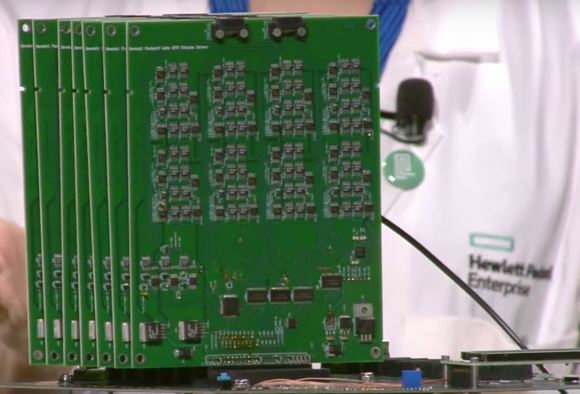HP Enterprise has developed a prototype computer that's designed to mimic the way the human brain works. The system, which is still in a very early stage, was shown off for the first time at the Discover conference last week in Las Vegas according to PC World.
The ultimate goal with the project, the publication notes, is to create a chip that uses algorithms and learning models to generate approximate results that can be used along with associations to make quick decisions.

Such a chip is still many years away but in the meantime, HP Enterprise is testing the brain-like computing model using a makeshift system comprised of circuit boards and memory chips. Cat Graves, a scientific researcher at Hewlett Packard Labs, said they're mimicking the brain's parallel computation architecture using memristor technology in conjunction with a specially designed architecture.
With traditional computers, data must leave storage cells for processing via the CPU and memory. While this process takes place very quickly, it still consumes valuable time and resources. HP Enterprise's architecture is exactly the opposite as computation takes place within the cells where data is stored, much like how our brains work.
Data connections are then established between cells, just like the synapses within the human brain.
It's worth noting that the completed chip - again, several years down the road - won't replace general-purpose hardware like CPUs and GPUs. That's because its computations are all based on probabilities and thus, are approximate, which means they may not be entirely accurate.
